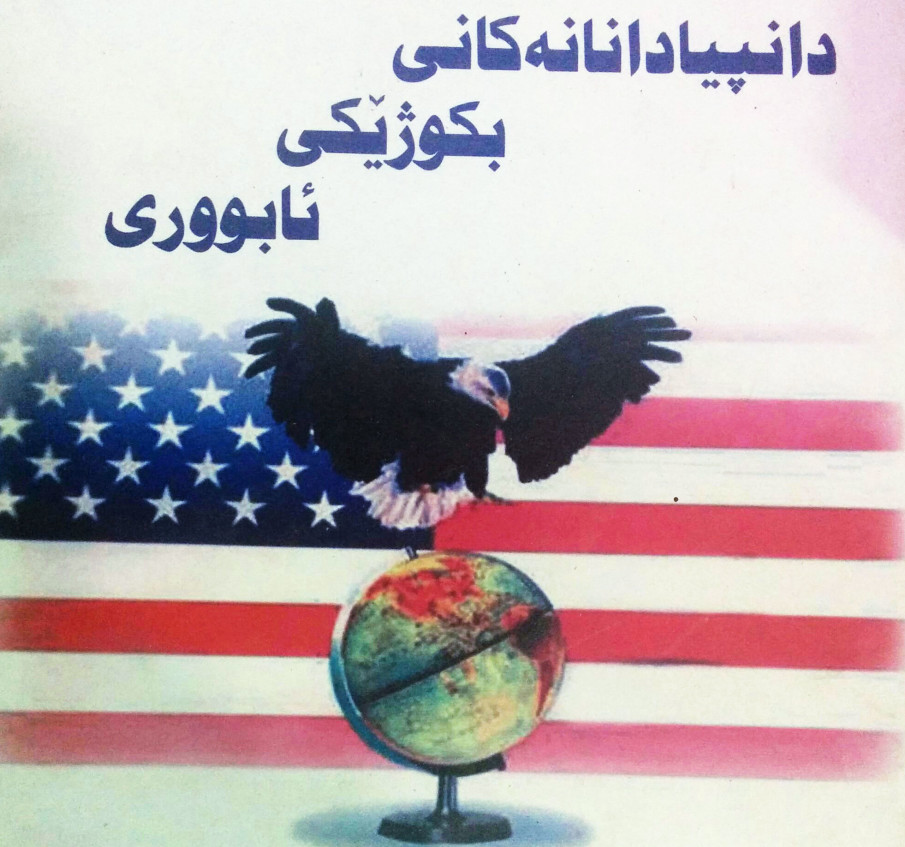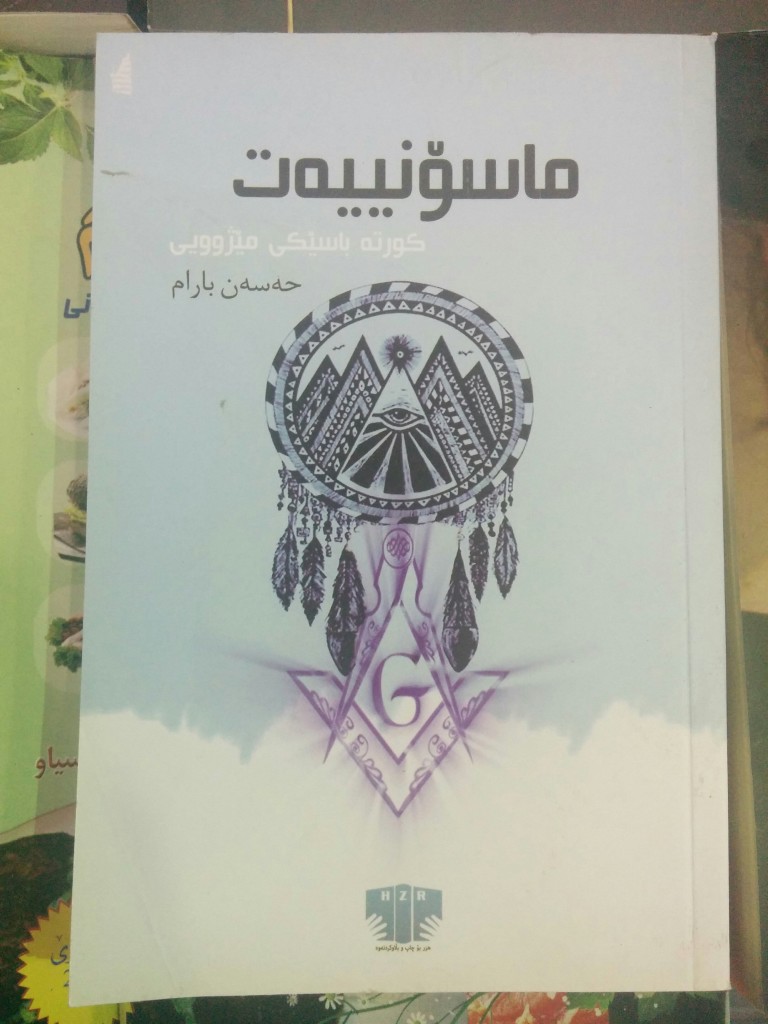The irrationality of Middle Eastern politics
America should own its failures, but the irrational interpretations of both successes and failures by many Kurds is something that we can’t control. Nonetheless, it is worthwhile to understand why many people believe America created ISIS. Following the irrationality model, many Kurds are upset with both American intervention and non-intervention. Both are seen as clear evidence for an American hand behind ISIS.
First, let’s look at the reason why American intervention in Iraq is seen by many Kurds as proof of American involvement with ISIS. Some of the people SOFREP talked to felt that America has pursued a clear campaign of destabilization in the Middle East. We invaded Iraq, destabilizing the country, which led to the creation of ISIS. This is at least partially true, even if it was unintentional. Others felt that America created ISIS to take over Iraq, even to punish the Iraq government for one reason or another. A priest was adamant that America has been buying oil from ISIS for five dollars a gallon. What was interesting was that these types of views were espoused by a capitalist businessmen in Erbil, a socialist PKK member, and even a Catholic priest in southern Kurdistan.
These same people simultaneously acknowledged that U.S. airstrikes had been a big help in helping the Kurds fight ISIS on the ground. But in the world of conspiracy theory, America can support and fight ISIS at the same time, as part of some kind of mega-plot. One Kurd explained this situation away, saying that we created ISIS to invade Iraq, but then they got out of our control so we had to reign them back in.
American non-intervention is also seen as evidence for ISIS being a U.S.-backed force. “America could destroy ISIS in three days if it wanted to,” one of the Kurds SOFREP spoke to said. Therefore, ISIS must be American backed, since we haven’t defeated them already. When making the point that America fought Islamic insurgents for nine years in Iraq to little avail, no rebuttal was given. The American government can’t control crime in Washington D.C., but apparently it can manipulate crimes across Iraq from the shadows.
New paradigms, old world views
Sitting down in a home in Qandil, the PKK stronghold in the Kurdish mountains, I discussed politics at length with a PKK member. The PKK is on America’s list of foreign terrorist organizations, but vigorously refutes the charge that they are terrorists. Formerly Marxists, the PKK has evolved their ideology starting in the 1990s and now follows a new political paradigm that they call democratic confederalism, which borrows from elements of Marxism, socialism, and anarchism. Some even describe the PKK’s new ideology as communalism or social libertarianism.
The PKK cadre member I spoke to was intelligent, politically sophisticated, and had the most developed worldview when it came to international politics. “There is a plan for the Middle East,” he said before pointing at me, “and it is made by you guys.” He told me that during the Cold War, the world was shaped by a bipolar worldview consisting of communism and capitalism, but since the fall of the USSR, these old political paradigms, and the colonial constructs they inspired, are no longer needed. According to the logic of the PKK, the West no longer needs strongmen to lord over its colonial empires. Today, America simply wants to destabilize countries, he told me.
“This started with the invention of finance capital,” the PKK member said. “Making money from money.” America no longer needs colonial relationships, so our government engages in dark plots to destabilize nations, sweep away borders, and plunge various countries into chaos so that we can simply go in and exact whatever resources we desire. On one hand, it isn’t hard to see why people may believe this. The West destabilized Libya and essentially treated it as an “open city” in the mafia sense that anyone could go there and operate.
Of course, ISIS fits right into this strategy of destabilization.
The PKK member made references to puppet masters lurking in the shadows and the actions of the “deep state” in Turkey. I recognized the terms from the fringe left in the United States. The deep state refers to a sort of collusion between a country’s intelligence apparatus and criminal elements. In America we would recognize the deep state as being behind allegations regarding the JFK assassination, CIA complicity in drug trafficking, and 9/11 being an “inside job.” In this case, the PKK member referenced the deep state in regards to Turkey and the recent bombing of a Kurdish gathering in Suruc, which upset his organization’s ceasefire with the Turkish government.
A second PKK member made the same claim but in more cautious terms. “I think America might have had something to do with it,” he said, referring to ISIS. “Early on, like maybe the U.S. was using them and then they got out of their control.”
The circular logic of conspiracy theories
I met a Kurdish contact at a cafe who asked me to question who benefits from the existence of Daesh. In his mind, he felt that Iran benefitted the most from ISIS since they came in and destabilized Iraq, allowing the Iranians to move in with Shia militias and take control of large swaths of the country. Shias funding Sunni terrorists? It wasn’t the first time I had heard such a claim. Even Lt. Col. Oliver North claimed that Iran funds Sunni terrorism when we interviewed him for SOFREP radio.
Conspiracy theorists often ask us to follow the logic of “who benefits,” believing that this will lead us to hidden actors behind the scenes. Let’s indulge them for a moment. Saddam Hussein made serious efforts to Arabize lands long occupied by the Kurds in Iraq, places like Kirkuk and strings of villages south of Dohuk. In Syria, Assad treated the Kurds in the north as second-class citizens. After ISIS destabilized both countries and captured hundreds of square kilometers, the Kurds moved in and seized these areas from the Islamists. The Peshmerga captured Kirkuk and its surrounding areas, as well as other areas in southeast Kurdistan, even Mt. Sinjar. In Syria, the YPG and YPJ kicked Daesh to the curb, seizing Afrin, Kobani, and Jayzera cantons, which cover nearly all of northern Syria.
In the international press, the Kurds are heroes. A small bastion of democracy fighting for their homeland and beating back the Islamist hoards. In a very real way, many Kurds can now see their dream of Kurdish independence on the horizon. In Kobani, all the major Kurdish factions united to fight Daesh. Even if the main effort was almost entirely the YPG and YPJ, this was a historic moment for the Kurds. A Kurdish Peshmerga fighter I met did not express any belief in conspiracy theory, but was quite open in his beliefs that ISIS was a good thing for the Kurds “because we got Kirkuk back,” he explained.
If anyone has benefitted from ISIS, it isn’t the United States, Iran, Israel, or any other curious interloper. The main beneficiaries of the war are the Kurds. Does this mean that Kurdistan created ISIS? Of course not. But the great thing about conspiracies is their circular logic. Where one conspiracy fails, a new conspiracy can be invented to justify things that simply don’t make any sense and don’t have any supporting evidence.
In Kurdistan, people of different religions, ideologies, and social class have a strong belief that America invented ISIS. Exactly why they believe this differs from person to person, but the belief persists that some dark shadow masters in America are pulling the puppet strings behind the conflict in Iraq and Syria. This leaves America in an impossible situation. Any foreign policy we choose in the region, be it one of action or inaction, will be interpreted by many as a sign of American plots and schemes.
(Note: Of the many Peshmerga fighters I talked to, none of them expressed a belief in the conspiracies above. They either knew that America was on their side or were too politically savvy to tell an American writer what they really thought.)











COMMENTS